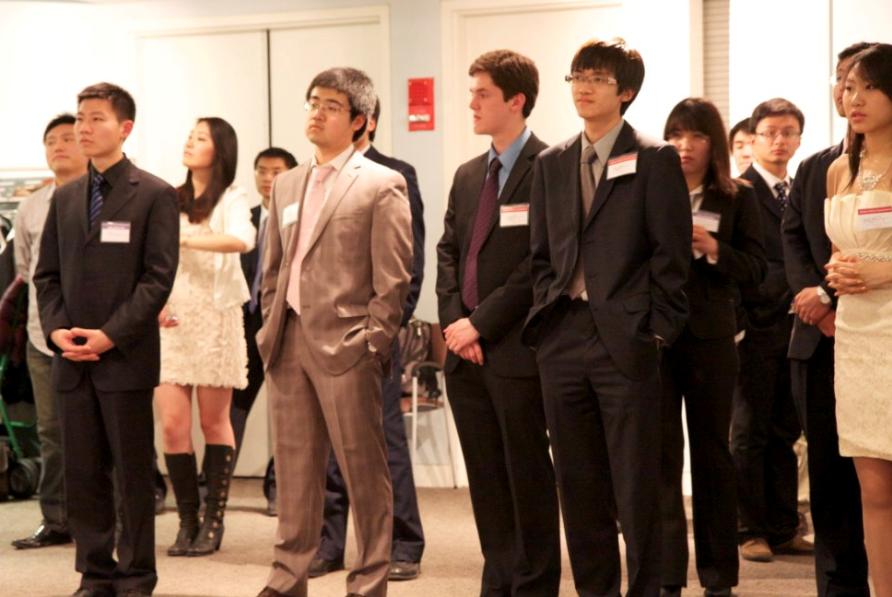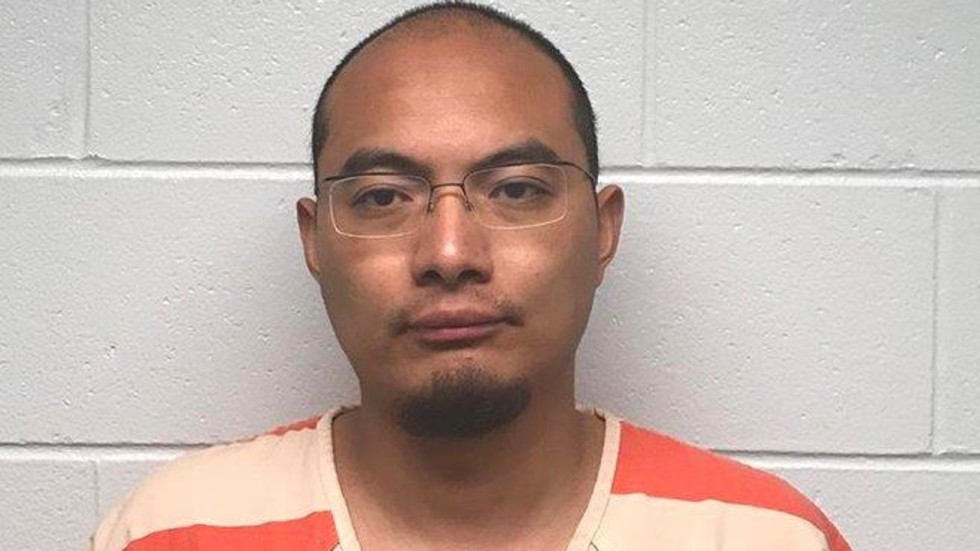By Eric Shawn
U.S. Intelligence agencies continue to warn of Beijing’s spying activities in the U.S. – including commercial espionage and the stealing of intellectual property.
“The Chinese counter-intelligence threat is more deep, more diverse, more vexing, more challenging, more comprehensive and more concerning than any counterintelligence threat that I can think of," FBI Director Christopher Wray testified at a Senate Intelligence Committee hearing last week.
And now, lawmakers are also focused on new allegations of China's attempts to influence American academia and public opinion.
A report from the director of National Intelligence is blunt: "China's intelligence services exploit the openness of American society, especially academia and the scientific community..."
"It is widespread and it is dangerous and this is legislation designed to stop that," Texas Republican Sen. Ted Cruz told Fox News about a bill he has re-introduced, The Stop Higher Education Espionage and Theft Act.
Its goal is to deter the infiltration by China of our country's universities, colleges and research institutions.
"Too many universities, I think, are gullible, are not realizing the magnitude of this threat," Cruz warned.
At a Senate hearing last year, FBI Director Wray acknowledged that worry.
"We do share concerns about the Confucius Institutes. We have been watching that development for a while. It is just one of the tools that they take advantage of," he said.
The National Association of Scholars is calling on Congress and state legislatures to open investigations to determine "whether Confucius Institutes increase the risks of a foreign government spying or collecting sensitive information."
"The key risk is that the American public and the students hear a one-sided view of what's going on in China," said Rachelle Peterson, policy director of the National Association of Scholars, who authored the study.
U.S. Intelligence agencies continue to warn of Beijing’s spying activities in the U.S. – including commercial espionage and the stealing of intellectual property.
“The Chinese counter-intelligence threat is more deep, more diverse, more vexing, more challenging, more comprehensive and more concerning than any counterintelligence threat that I can think of," FBI Director Christopher Wray testified at a Senate Intelligence Committee hearing last week.
And now, lawmakers are also focused on new allegations of China's attempts to influence American academia and public opinion.
A report from the director of National Intelligence is blunt: "China's intelligence services exploit the openness of American society, especially academia and the scientific community..."
"It is widespread and it is dangerous and this is legislation designed to stop that," Texas Republican Sen. Ted Cruz told Fox News about a bill he has re-introduced, The Stop Higher Education Espionage and Theft Act.
Its goal is to deter the infiltration by China of our country's universities, colleges and research institutions.
"Too many universities, I think, are gullible, are not realizing the magnitude of this threat," Cruz warned.
"This is a concerted, organized, systematic threat to undermine our universities and undermine our economy and we need to be serious to combat it."
Several current and former Chinese students have been convicted in U.S. courts for espionage.
Chinese spy Ji Chaoqun -- who came to the U.S. on a student visa, attended Illinois Institute of Technology and enlisted in the U.S. Army Reserve -- was assigned to provide Chinese intelligence officials with information from background checks on eight American citizens -- some of whom were U.S. defense contractorsSeveral current and former Chinese students have been convicted in U.S. courts for espionage.
Just recently, Ji Chaoqun, who had studied electrical engineering at the Illinois Institute of Technology, was arrested and accused of working for Chinese intelligence to recruit spies here in the U.S.
He is now awaiting trial.
But it is not just spying that Sen. Cruz is concerned about.
He is also raising the alarm about a Chinese-backed academic program, The Confucius Institute, that currently operates on about 100 U.S. campuses.
The Institute, financed by Beijing and designed to provide education about the country's culture, is actually indoctrinating American students with regime propaganda.
The Institute, financed by Beijing and designed to provide education about the country's culture, is actually indoctrinating American students with regime propaganda.
The National Association of Scholars published a 184-page study called "Outsourced To China, Confucius Institutes and Soft Power in American Higher Education."
It says the Institute suppresses academic freedom, lacks transparency, and is part of China's use of soft power intended to present China in a 'positive' light in order to develop a generation of American students with selective knowledge of a major country.
"I passed into law legislation targeting, in particular, the Confucius Institutes, institutes being funded by the communist government of China," Cruz said.
"I passed into law legislation targeting, in particular, the Confucius Institutes, institutes being funded by the communist government of China," Cruz said.
"The FBI has raised concerns very specifically about the Confucius Institutes."
At a Senate hearing last year, FBI Director Wray acknowledged that worry.
"We do share concerns about the Confucius Institutes. We have been watching that development for a while. It is just one of the tools that they take advantage of," he said.
The National Association of Scholars is calling on Congress and state legislatures to open investigations to determine "whether Confucius Institutes increase the risks of a foreign government spying or collecting sensitive information."
"The key risk is that the American public and the students hear a one-sided view of what's going on in China," said Rachelle Peterson, policy director of the National Association of Scholars, who authored the study.
She said the Institutes should all be shut down.
"At these Confucius Institutes, the teachers are hand selected and paid by the Chinese government, the textbooks are being sent over and paid for by the Chinese government, and funding is being provided by the Chinese government," she notes.
"The only way to protect from these type of incursions from the Chinese government is to close down the Institute. There really is no safe way to operate a Confucius Institute that protects academic freedom."
Cruz said its past time to send Beijing an even stronger message than just closing the Institute's doors.
"The Chinese communist government is a dictatorship, it is cruel and repressive. It tortures and murders its citizens, and dictatorships hate sunlight, they hate truth. We are sitting here in my Senate office, over my shoulder here," he said, pointing a large painting of President Ronald Reagan addressing the crowd in Berlin during his famous "Tear down this wall" speech in 1987.
"At these Confucius Institutes, the teachers are hand selected and paid by the Chinese government, the textbooks are being sent over and paid for by the Chinese government, and funding is being provided by the Chinese government," she notes.
"The only way to protect from these type of incursions from the Chinese government is to close down the Institute. There really is no safe way to operate a Confucius Institute that protects academic freedom."
Cruz said its past time to send Beijing an even stronger message than just closing the Institute's doors.
"The Chinese communist government is a dictatorship, it is cruel and repressive. It tortures and murders its citizens, and dictatorships hate sunlight, they hate truth. We are sitting here in my Senate office, over my shoulder here," he said, pointing a large painting of President Ronald Reagan addressing the crowd in Berlin during his famous "Tear down this wall" speech in 1987.
"This a painting of Ronald Reagan standing before the Brandenburg gate, and up above written in German are the words 'tear down this wall' in the style and graffiti on the Berlin wall. I think those are the most important words said by any leader in modern times."
The senator likens that call for freedom for the millions of people living behind the Iron Curtain, to one that he says is needed to tell Beijing today.
"That's what the Chinese government fears. They fear sunlight, so they spend money trying to stifle academic freedom in our universities and universities shouldn't be willing to sell their academic freedom, they shouldn't be willing to allow the communist government to have control over discussion."
Neither the Chinese Embassy in Washington, D.C. nor Hanban, a public Chinese institution affiliated with the Chinese Ministry of Education, responded to requests from Fox News to comment about the allegations.
The senator likens that call for freedom for the millions of people living behind the Iron Curtain, to one that he says is needed to tell Beijing today.
"That's what the Chinese government fears. They fear sunlight, so they spend money trying to stifle academic freedom in our universities and universities shouldn't be willing to sell their academic freedom, they shouldn't be willing to allow the communist government to have control over discussion."
Neither the Chinese Embassy in Washington, D.C. nor Hanban, a public Chinese institution affiliated with the Chinese Ministry of Education, responded to requests from Fox News to comment about the allegations.
But the Confucius Institute U.S. Center defended itself, by issuing a statement that said, in part:
"They are programs... dedicated to the teaching of Mandarin, cultivating Chinese cultural awareness, and facilitating global education... The programs do not teach history, politics, or current affairs... The courses are managed and supervised by U.S. universities which also decide the content, instructors, and textbooks."
But despite that defense, Rachelle Peterson has reservations.
"The American people need to know that what they are hearing about China may not be true. It may be influenced by the Chinese government's P.R. campaign, and even from the halls of academia, which are supposed to be trustworthy and respected, it may even be happening there."
She said at least 15 universities have shut down or are in the process of kicking the Confucius Institutes off their campuses, and more are expected to follow.
Senator Cruz says the University of Texas at Austin turned down Chinese funding.
“Thankfully U.T. made the right decision and said, ‘you know what, we are not going to take the Chinese money,’” he says.
“There is no doubt, in the long term, China is the single greatest geo-political competitor and threat to the United States,” Cruz warns.
She said at least 15 universities have shut down or are in the process of kicking the Confucius Institutes off their campuses, and more are expected to follow.
Senator Cruz says the University of Texas at Austin turned down Chinese funding.
“Thankfully U.T. made the right decision and said, ‘you know what, we are not going to take the Chinese money,’” he says.
“There is no doubt, in the long term, China is the single greatest geo-political competitor and threat to the United States,” Cruz warns.
“The tools they are using are espionage and theft, and too many of our university officials are naïve to that threat, and just see free money, without the perils that are attached.”
 Born to spy: Chinese students in America
Born to spy: Chinese students in America



